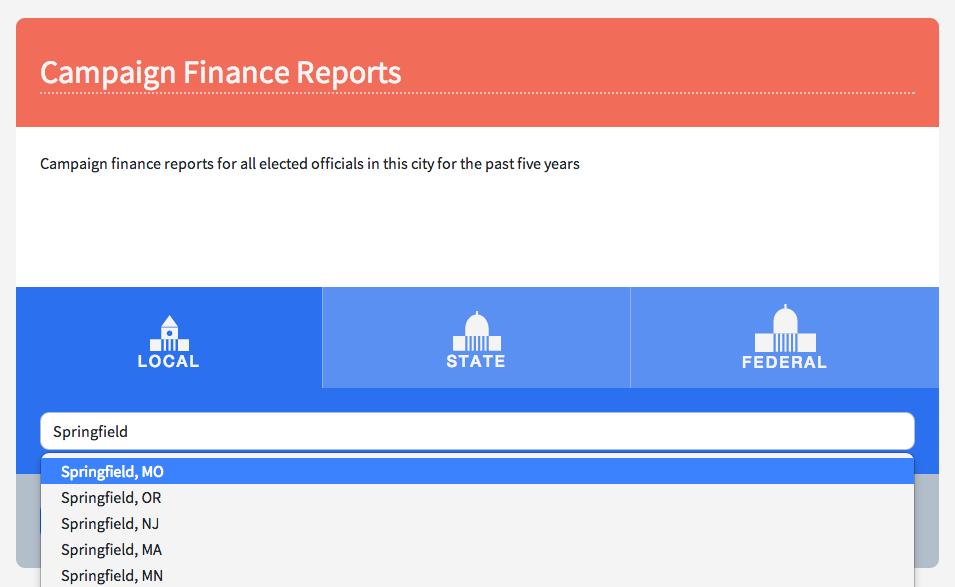FOIA 101 with MuckRock
Getting started with public records — and MuckRock
Requesting public records, whether from your local library or the National Security Agency, can be daunting. What will actually get your question answered? What does the law say? What if the agency rejects your request?
MuckRock is here to help. We help anyone file, track and share public records requests, using a mix of software and hands-on help to make the process as easy and transparent as possible. We help journalists, researchers, activists, and people who just want to better understand what their government is up to. Originally made possible by a grant from the Sunlight Foundation, the service is now funded primarily by its users. Creating an account and drafting a request can be done for free, we’ll only charge you once you submit your request and begin the filing process.
Turn your question into a records request
One of the keys to a good public records request is remembering that you’re not asking a question — your asking for documents that answer a question. So instead of asking how many dogs live in your city, ask for the dog license registry. Almost everything the government does creates some paper trail, whether that’s a log, a report, a presentation before a big project, lessons learned after a natural disaster, or even a copy of an agency’s Intranet page.
But the important thing is to file something. Very successful requesters, like Jason Leopold, file a dozen or more requests a week. Not all of them will be successful, but filing a number of requests today increases the chances that interesting material will be returned in the weeks and months to come.
To start filing, use the “Create a FOIA Request” button on the top of any page on MuckRock. You will compose the request using a short form will walk you through the information we need to file it. Basically, decide what kind of question your trying to get answered, then figure out which level of government is likely to have records with answers to that question. We maintain a database of thousands of agencies at all levels of government and across almost every jurisdiction. Generally, just type the first few letters of an agency’s name and we’ll show the ones we know about. Occasionally, we won’t have the agency saved. If you enter the agency’s name and jurisdiction, we will take care of finding their contact information.

Your one-stop FOIA shop
Filing requests through MuckRock starts at just $20 to file up to four requests.
We send and receive all requests and responses on your behalf. This is done instantly and electronically, for the most part. For agencies still stuck in the 20th century, we’ll scan and digitize any records that come in by mail. Your request page is a permanent archive you can share with a link.
When it’s time to follow up on a request with a delinquent agency, we can follow up on the request automatically. If an agency needs more details, we’ll flag the request and give you the chance to respond. Sometimes agencies require fees to be paid before they’ll deliver your documents. You can securely pay these fees through MuckRock, and we’ll make sure they get to the agency. Or, if the fees are outside your budget, start a crowdfund to raise the money. We offer a toolset that is informed by years of experience (and frustration!) with the process of requesting public records.
Are you a journalist or researcher who use public records professionally? Consider a Professional account, with the ability to embargo requests, file at a highly reduced rate, file to multiple agencies at once, and more.
Do you represent an organization that is looking to embrace FOIA in a big way? We offer Organization accounts with scaled pricing and a shared pool of requests for all members to share. Organization members also get access to all Pro features, as well as the ability to embargo permanently.
Ask the experts
MuckRock offers a free question-and-answer space to throw out your trickiest public records problems, where some of the best filers on the planet come to offer their advice and insight. Ask away!
Follow the pros
MuckRock regularly interviews FOIA experts for their advice on what they’ve learned. Here’s some of our favorite tips, plus links to the full interviews.
It is incredibly important to be as specific as possible with your request: what kind of documents you are looking for, when these documents were created and/or updated, which department is likely to hold the documents you are after, and so on. A broad request asking for all documents “pertaining to” a topic is more likely to be refused than a more specific request.
If you have a “sensitive” FOIA request or are getting jerked around, request the processing notes for it to see what the agency is saying about it. Always appeal if you get rejected. Know as much of the laws and court precedents as you can.
FOIA requesters must know everything there is to know about the subject matter for which they are seeking responsive records. I would also advise first time requesters to read FOIA logs and file FOIAs for administrative case files.
Better know your local laws
MuckRock has an ongoing series looking at state public records laws. Learn more about public records in:
The Reporters Committee for Freedom of the Press also has an excellent state-by-state guide on public records, including details on exemptions, fee waiver provisions and more.